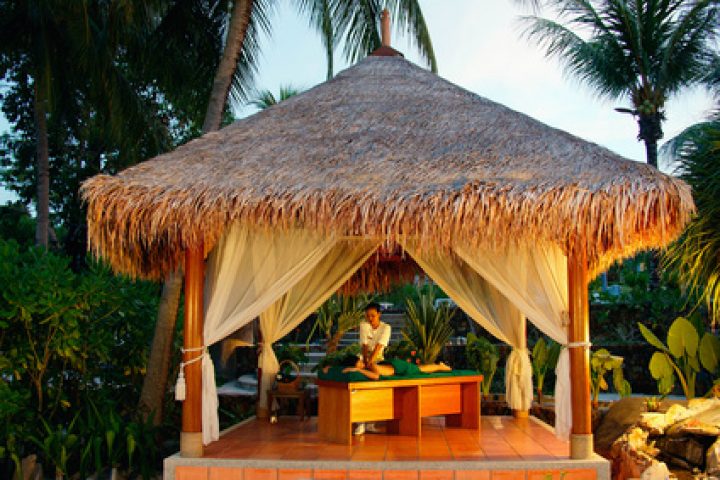
Fiji Islands Medical Tourism

Fiji Details
The Fiji islands are located in the South Pacific, a string of islands surrounded by beautiful, aqua-blue waters and deep blue skies. As the ultimate tourist destination, the South Pacific continues to lure and attract visitors from around the globe as it has for hundreds of years.
Fiji is actually a chain of islands located north and northeast of New Zealand and Australia. Their nearest neighbors are the islands of Vanuatu to the west and New Caledonia to the southwest. Also located nearby are Samoa and Congo, other islands that have been inhabited by natives for thousands of years.
The Fiji islands were first discovered and explored nearly 5,000 years ago, and developed as a trade route between the countries of Australia, the Americas, and Southeast Asia. The Fiji islands are the most famous of the island groups found in the South Pacific, perhaps made more famous and popular due to their rich history including that of the “Bounty” sailing vessel. Fiji is a word that has always been linked with visions of paradise; peace and solitude, white, sandy beaches, pristine blue waters, and tropical flora and fauna basking under the gentle warmth of the South Pacific sunshine.
Health Care in Fiji
While Fijians themselves are incredibly proud of their country and its opportunities, they do lack in choices when it comes to health care and medical services. That’s why many Fijians must travel to foreign destinations in the nearby South Pacific and Southeast Asia region to countries like India, New Zealand, and Australia to better meet their medical needs and demands.
Health care facilities on Fiji are adequate for general medical treatments, but even in rural areas, medical staff, training and experience is limited. Medications and supplies are often in short supply, and emergency response facilities and teams are very limited. The Fiji island group boasts two major hospitals; the Colonial War Memorial Hospital in Suva and the Lautoka Hospital in Lautoka, but both offer limited emergency as well as outpatient services. Health clinics and facilities throughout the island chain offer limited health services and medical evacuees must be transported to the United States, New Zealand or Australia for more specific medical attention and care. Such services can cost upwards of tens of thousands of dollars.
Fijians travel to New Zealand, Australia, India, Thailand and Singapore for more choices when it comes to treatments, surgeries and medical care. Some of the most popular services that Fijians travel to other destinations in the South Pacific for include:
-
Internationally recognized healthcare organization and delivery systems
-
Quality healthcare not available in their own country
-
The latest in technology and equipment such as robotic surgery systems and technologies,
-
Comprehensive care facilities
-
Access to affordable treatments and procedures
-
Availability of specialized surgical procedures and technologies
-
Heart specialists offering pacemakers, coronary artery bypass, angioplasty and heart valve or heart transplant
-
Cancer treatment utilizing the latest drugs and treatment techniques
-
Chronic disease treatment – COPD, diabetes, eating disorders, skin diseases
What to Take With You
Fijians traveling to Australia, New Zealand or India for medical care should contact the embassy of the country they wish to visit for list of requirements to obtain a passport and visa, if required by the destination country. Fiji citizens may be able to enter New Zealand and Australia without a visa as long as stays are limited to under three months, but check with the embassy of the country you wish to visit beforehand to determine their specific requirements. Visitors to India and other Southeast Asian countries may apply for a medical visa in many circumstances, specifically for treatment or procedures in recognized and well-reputed hospitals throughout India. Such visas may be granted for a year or multiple entries for a year for treatments.
Contact a medical facility directly or through PlacidFiji or PlacidWay.com, a major medical resource for international medical travelers regarding options and locations for the type of medical care in which you are interested. Documents to bring along may include:
-
Medical records – including recent treatments/procedures
-
List of medications – don’t forget to mention any allergies
-
Consultation or referrals from domestic health care provider
-
Detailed medical history – be prepared to answer questions regarding your social history and background.
Fijians Traveling Abroad Should Ask About:
-
Costs – What are the costs of a medical travel package (accommodations, lab fees, physical exams, consultations, procedure costs) during your stay?
-
Prepayment requirements – and how facilities want to be paid. Do they take cash? Will the facility take traveler’s checks or credit card payments?
-
Details for prospective treatments – Are upfront payments or deposits required?
-
Transportation Issues – Will facilities offer pick-up and drop-off services for arriving patients? Are taxis available, and if so, what are the rules regarding taxi rates?
Fijians traveling abroad for medical care are encouraged to research information and ask questions of their chosen facility your provider regarding travel and treatment arrangements. Don’t hesitate to ask questions, and always keep a copy of your contact information with you as you travel to your medical destination.
Categories: Destinations
